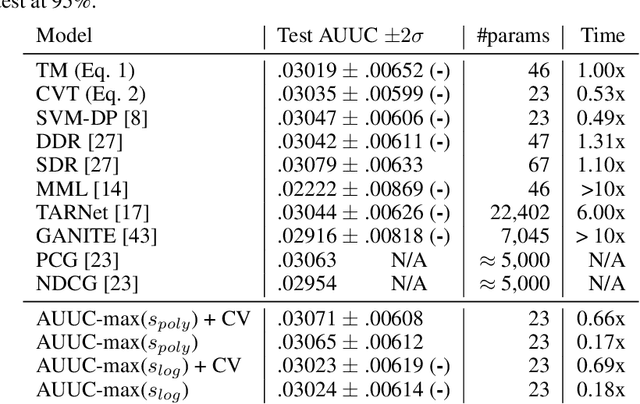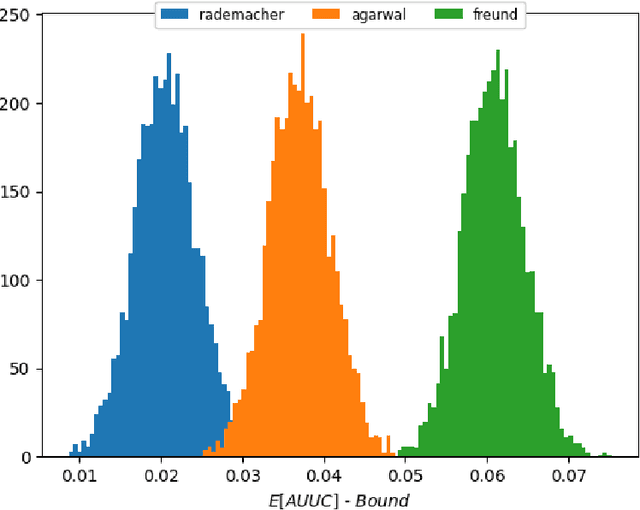Treatment Targeting by AUUC Maximization with Generalization Guarantees
Paper and Code
Dec 17, 2020



We consider the task of optimizing treatment assignment based on individual treatment effect prediction. This task is found in many applications such as personalized medicine or targeted advertising and has gained a surge of interest in recent years under the name of Uplift Modeling. It consists in targeting treatment to the individuals for whom it would be the most beneficial. In real life scenarios, when we do not have access to ground-truth individual treatment effect, the capacity of models to do so is generally measured by the Area Under the Uplift Curve (AUUC), a metric that differs from the learning objectives of most of the Individual Treatment Effect (ITE) models. We argue that the learning of these models could inadvertently degrade AUUC and lead to suboptimal treatment assignment. To tackle this issue, we propose a generalization bound on the AUUC and present a novel learning algorithm that optimizes a derivable surrogate of this bound, called AUUC-max. Finally, we empirically demonstrate the tightness of this generalization bound, its effectiveness for hyper-parameter tuning and show the efficiency of the proposed algorithm compared to a wide range of competitive baselines on two classical benchmarks.
 Add to Chrome
Add to Chrome Add to Firefox
Add to Firefox Add to Edge
Add to Edge